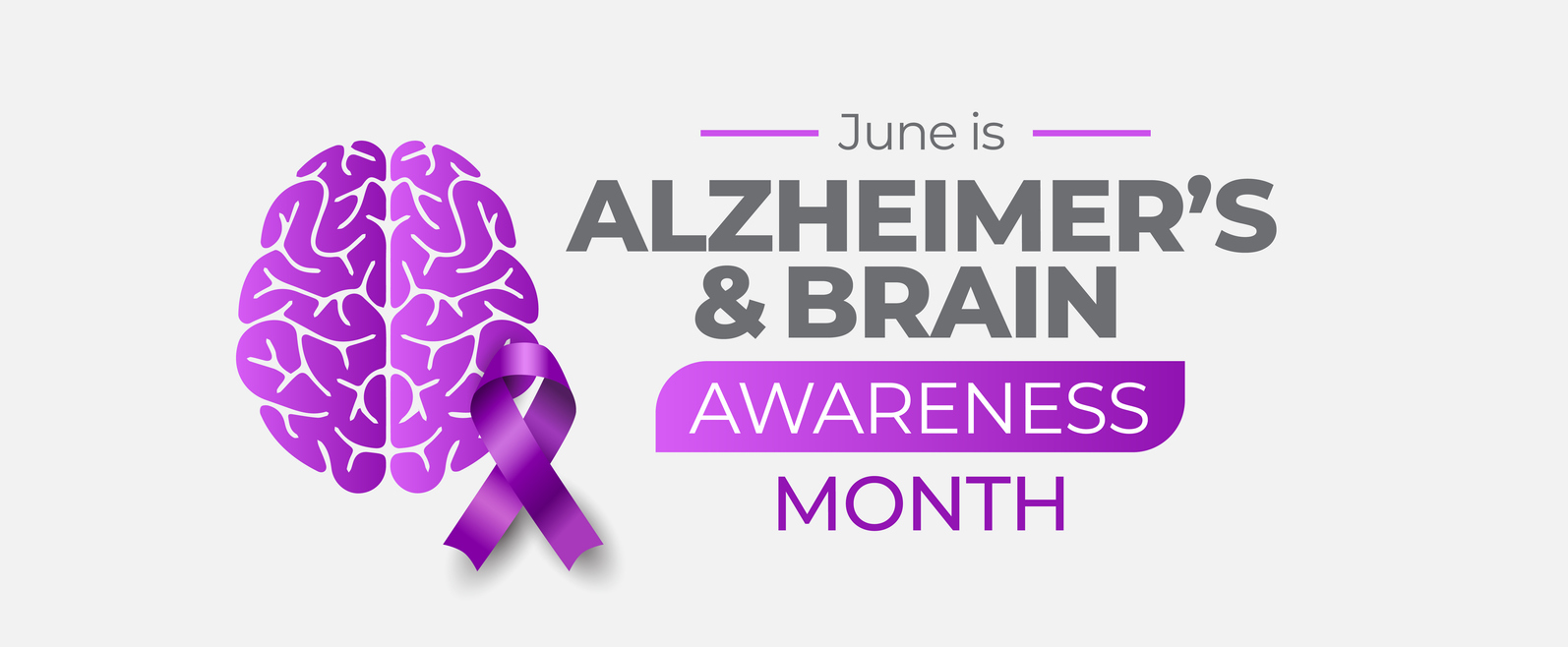Early detection in Alzheimer’s is critical, offering numerous benefits that can enhance the quality of life for those affected and provide valuable time for planning and intervention. Alzheimer’s disease, a progressive neurological disorder, is the leading cause of dementia worldwide, affecting millions of individuals and their families. Despite its prevalence, Alzheimer’s often goes undiagnosed until its later stages, when symptoms become more pronounced and the impact on daily life is significant. Alzheimer’s & Brain Awareness Month, held annually in June, is a month-long observance that aims to increase awareness about Alzheimer’s disease, a progressive neurological disorder that affects millions worldwide.
Understanding Alzheimer’s Disease
Alzheimer’s disease is characterized by the buildup of amyloid plaques and tau tangles in the brain, leading to the death of neurons and the decline of cognitive functions. Symptoms typically begin with mild memory loss and confusion, gradually progressing to severe cognitive impairment and loss of independence. While there is currently no cure for Alzheimer’s, early detection can play a pivotal role in managing the disease.
Benefits of Early Detection
Access to Treatment and Therapies: Early diagnosis allows individuals to start treatment sooner. Medications and therapies available today are more effective when initiated in the early stages of the disease. These treatments can help manage symptoms, slow progression, and improve the quality of life.
Planning and Preparation: An early diagnosis gives individuals and their families time to plan for the future. This includes making legal, financial, and care arrangements, and discussing preferences for care and living arrangements.
Participation in Clinical Trials: Early detection increases the opportunity to participate in clinical trials. These trials are essential for advancing research and discovering new treatments. Participants in trials also gain access to cutting-edge therapies that are not yet widely available.
Lifestyle Modifications: Evidence suggests that certain lifestyle changes, such as a healthy diet, regular exercise, mental stimulation, and social engagement, can have a positive impact on brain health. Early detection allows individuals to adopt these habits sooner, potentially delaying the progression of symptoms.
Support and Resources: Knowing the diagnosis early provides access to support networks and resources. Families can connect with Alzheimer’s organizations, support groups, and educational programs, gaining valuable information and emotional support.
Methods of Early Detection
Advances in medical research have led to the development of several methods for early detection of Alzheimer’s disease:
Cognitive Testing: Regular cognitive assessments can identify early signs of memory loss and other cognitive changes. Tests such as the Mini-Mental State Examination (MMSE) or the Montreal Cognitive Assessment (MoCA) are commonly used by healthcare providers.
Biomarker Testing: Biomarkers are biological indicators that can signal the presence of Alzheimer’s disease. Tests analyzing cerebrospinal fluid (CSF) for amyloid and tau proteins, as well as blood tests for specific biomarkers, are becoming more accessible.
Neuroimaging: Imaging techniques like magnetic resonance imaging (MRI) and positron emission tomography (PET) scans can detect changes in brain structure and function. Amyloid PET scans, for example, can visualize amyloid plaques in the brain.
Genetic Testing: Genetic factors can increase the risk of developing Alzheimer’s. Genetic testing for specific mutations, such as those in the APOE gene, can help identify individuals at higher risk.
Digital Tools and Apps: Emerging technologies, including smartphone apps and digital platforms, are being developed to monitor cognitive function and detect early changes that may indicate Alzheimer’s.
The Path Forward
While the fight against Alzheimer’s disease continues, the emphasis on early detection represents a significant advancement in our approach to managing the condition. Public health campaigns and healthcare providers are working to raise awareness about the importance of recognizing early symptoms and seeking medical advice promptly.
Investing in research to improve diagnostic methods, develop effective treatments, and ultimately find a cure remains a top priority. Early detection not only benefits those at risk or in the early stages of Alzheimer’s but also contributes to the broader understanding and eventual eradication of this devastating disease.
By prioritizing early detection, we can offer hope, improve outcomes, and enhance the quality of life for millions affected by Alzheimer’s disease. As awareness grows and technology advances, the dream of overcoming Alzheimer’s moves closer to reality, providing a brighter future for all.
If you or someone you know is interested in care management or home healthcare services in South Florida, FirstLantic can help. We are locally owned and operated, providing our patients with the highest quality in-home care services in Fort Lauderdale (Broward County), as well as in-home care services in Delray Beach (Palm Beach County), North Miami (Miami-Dade) and Jupiter (Treasure Coast) since 2000. Click here to contact us.
 AVAILABLE 24 HOURS A DAY/7 DAYS A WEEK
AVAILABLE 24 HOURS A DAY/7 DAYS A WEEK Careers
Careers







